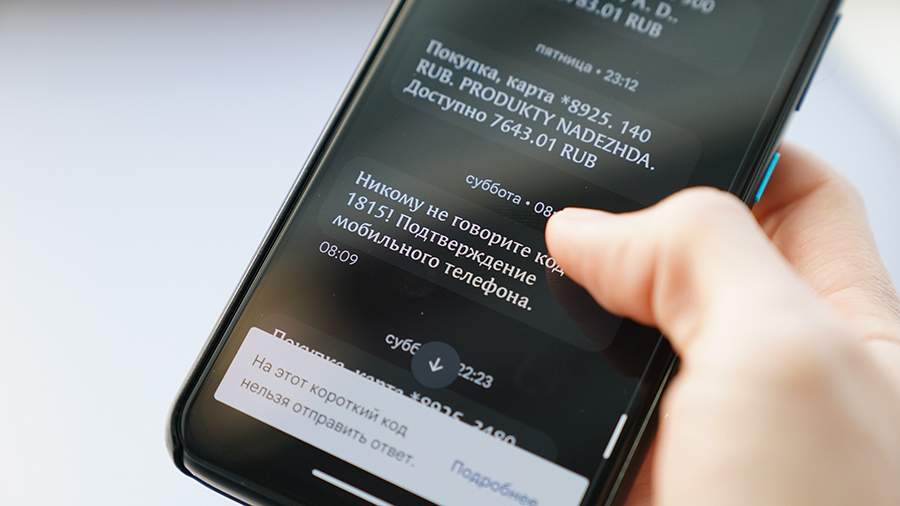The Ministry of Finance and the Central Bank have developed measures to protect Russians from cyber fraud
- Новости
- Internet and technology
- The Ministry of Finance and the Central Bank have developed measures to protect Russians from cyber fraud

On instructions from the Government, the Ministry of Finance of the Russian Federation, together with law enforcement agencies and the Central Bank of the Russian Federation, has drawn up a package of draft laws aimed at protecting Russians from fraudulent schemes involving the use of information technologies. 30 measures are envisaged. This was reported to journalists on November 26 by Deputy Prime Minister, Head of the Government Staff Dmitry Grigorenko.
Grigorenko said that the most common fraudulent schemes have been analyzed, including deception through calls and messages, hacking into personal accounts and issuing loans on other people's passports. Based on the information received, proposals have been developed to protect Russians from such threats.
The measures include the possibility for citizens to remotely prohibit the issuance of loans and credits online in their own name - through the portal "Gosusgoservices" or the application of banks. In addition, credit organizations will be obliged to conduct a more thorough check of borrowers. At the same time, new rules are being introduced to identify and verify the identity of users.
In addition, it is assumed that if a person has changed his credentials or there was a leak of personal information, in these cases, a temporary "freeze" on the issuance of loans online will take effect - for some time it will be impossible to issue a loan. The possibility of online exchange of information between government agencies, banks and digital platforms is also fixed. .
Against the background of the spread of fraud, when con artists pretend to be employees of banks, it is planned to introduce mandatory labeling of calls. The name of the organization will be shown on the user's phone screen. At the same time it is proposed to prohibit government agencies, credit organizations and telecom operators to communicate with customers through messengers.
Earlier, November 20, it was reported that attackers have found a way to circumvent the restrictions of banks to block suspicious transfers. Fraudsters are increasingly using a variant of the "safe account" deception scheme, in which victims are persuaded to hand over cash to couriers, Ashot Oganesyan, founder of the DLBI vulnerability and data leak intelligence service, told Izvestia. At first, the con artists, as before, convince the potential victim that the funds are in danger. However, then, instead of encouraging the person to transfer the money to a "safe account," they ask to withdraw it through an ATM and hand it over to a courier.
Before that, on October 25, it was reported that during this year 64% of Russians surveyed have encountered different types of cyber fraud. This is stated in the results of a study of financial marketplace "Vyberu.ru". At the same time, in 78% of cases, potential victims managed to avoid losing money. In addition, 58% of respondents who revealed the con artists' intentions admitted that they realized that strangers were trying to swindle money out of them as early as the second minute of the conversation.
Переведено сервисом «Яндекс Переводчик»

